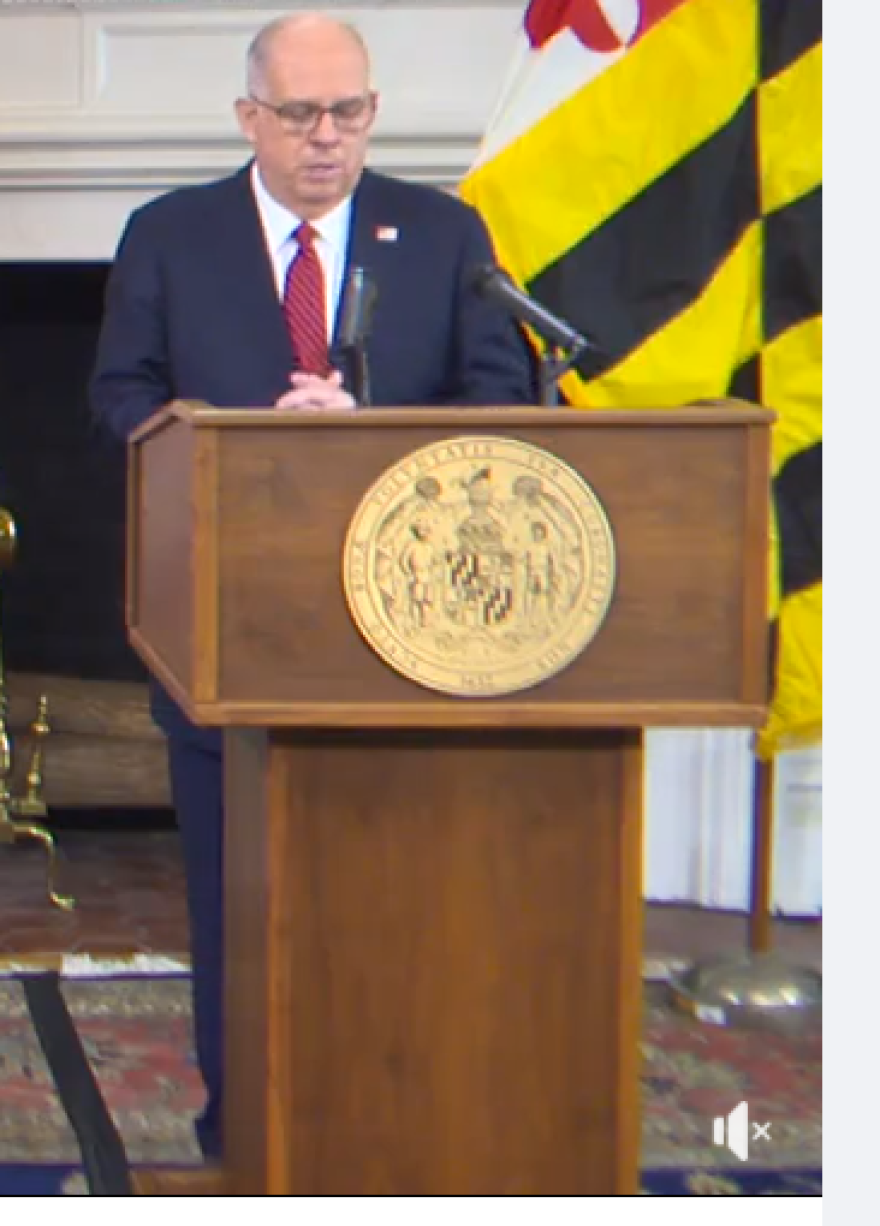Governor Larry Hogan announced billions of dollars in new state spending Wednesday, fueled by an influx of federal money from the American Rescue Plan.
He was joined at an afternoon news conference by legislative leaders and praised the bipartisan negotiations that led to the increased spending plan.
Hogan said his budget team began meeting with legislative leaders even before Congress passed the relief plan to decide how to spend the $3.9 billion the state expected to receive and they came to agreement..
“I'm pleased to announce today that we have once again reached an historic bipartisan agreement on a fiscally responsible budget accord, which effectively targets relief to Marylanders most in need,” he said.
He said $1.1 billion of the money would go to replenishing the state’s Unemployment Insurance Trust Fund, which has been struggling to keep up with payments to Marylanders thrown out of work by the pandemic. He said the money would keep the fund solvent and stabilize unemployment insurance rates for at least the next two calendar years.
“This shoring up of the unemployment system will help us to continue helping those who need it most. while also ensuring that we can provide continuing tax relief for struggling businesses,” Hogan said.
Hogan said his budget would add $800 million to the $1 billion RELIEF fund the General Assembly approved earlier this session, $600 million for programs to re-open schools, including improvements to HVAC, ventilation and filtration systems and $300 million for what he called a “game changing broadband technology initiative.”
The money would be used to “provide the infrastructure and technical assistance to ensure that every single Marylander has access to high-speed internet in every corner of the state,” Hogan said.
Senate President Bill Ferguson said only some Marylanders were lucky enough to be able to continue working and going to school because of their access to high speed internet.
“But your livelihood, opportunities for learning, and safely being able to socialize should never have been about luck, or zip code,” he insisted.
Those who weren’t lucky or didn’t live in the right zip codes fell behind, he said, not for lack of desire or initiative, but because internet access was not available to them.
“So the question is not how much does it cost to bridge the digital divide,” he said. “The question is, how much will it cost if we don't act right now, and who will be left out of the opportunities of today and tomorrow if we don't have urgency around this issue?”
He called the expansion of broadband infrastructure an historic investment in Maryland’s future.
“The funds that are allocated for this amendment are tackling the short term needs. But taking a long term approach.”
House Speaker Adrienne Jones highlighted some other priorities that the General Assembly pushed for.
“Together, we will be able to invest an additional half a billion dollars in shovel ready construction projects, to get Marylanders back to work,” she said.
Jones also said she was pleased with the money that would go toward getting people outdoors again.
“Outdoor recreational opportunities have been a lifeline for so many during this pandemic,” she said. “So I'm pleased that we are funding park and playground projects in every single county in this state.”
This will be the fifth supplemental budget Hogan has submitted to the legislature this session. Both chambers have passed different versions of the budget for the coming fiscal year and have set up a conference committee to iron out the issues before adjournment on April 12.



